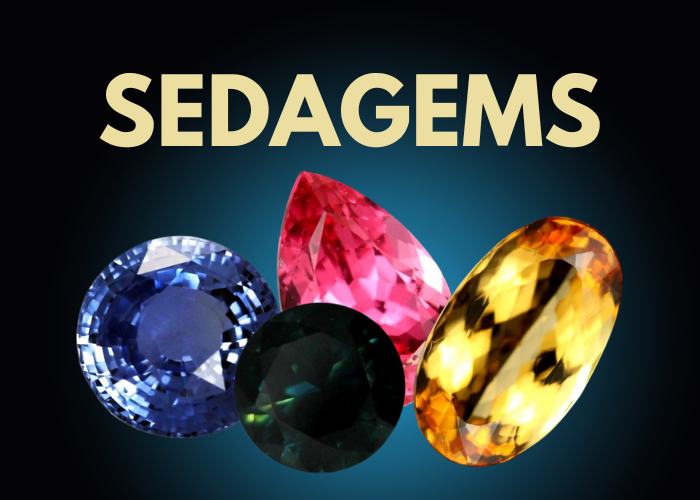RHODONITE SPECIMEN BRAZIL 730 CTS[ .MX9178 [W]
- SKU
- Dimensions (mm)
- x x mm
- Weight (cts)
- Type
- Specimen
- Colours
-
MINERAL GEM WORLD
RHODONITE SPECIMEN
Rhodonite is well known among collectors for its beautiful pink and red color. The red variety can be so deep red that it rivals the color of Ruby.
On a quartz base for display
This is a stunning large specimen from Brazil
Weight 730 cts app
Size 61x52x25 mm app
Rhodonite is an attractive mineral that is often carved and used in jewelry. It is named after the Greek word for rose, rhodon. Its rose-pink color is distinctive and can only be confused with rhodochrosite and the rare mineral, pyroxmangite, MnSiO3. Rhodochrosite however is streaked with white minerals such as calcite and is reactive to acids. While rhodonite does not react to acids and is usually associated with black manganese minerals and pyrite. Pyroxmangite is a little harder to distinguish because the two minerals are closely related and x-ray studies are usually needed when found massive. Crystals of pyroxmangite are often twinned as is not the case with rhodochrosite crystals. Crystals of rhodonite, while not in nearly the same abundance as massive rhodonite, are still found and distributed on the mineral markets. They come from a few notable localities and are considered classics by collectors.
PHYSICAL CHARACTERISTICS:
- Color is typically pink to red or orange and even black.
- Luster is vitreous to dull to pearly on polished surfaces.
- Transparency: Crystals are generally translucent and rarely transparent.
- Crystal System is triclinic; bar 1
- Crystal Habits include crystals that have a blocky prismatic habit, however crystals are rare. More typically massive, coarse and fine granular aggregates.
- Cleavage is perfect in two directions forming prisms with a rectangular cross-section.
- Fracture is conchoidal.
- Hardness is 5.5 - 6.5.
- Specific Gravity is approximately 3.4 - 3.7+ (above average for translucent minerals)
- Streak is white.
- Associated Minerals are calcite, pyrite, microcline, spessartine, pyroxmangite and other manganese minerals.
- Other Characteristics: May tarnish to a brown or black color upon exposure.
- Notable Occurrences include Ural Mountains, Russia; Broken Hill, Australia; Langban, Sweden, Menas Gerais, Brazil and Massachusetts and Franklin, New Jersey, USA.
- Best Field Indicators are color, black inclusions, lack of reaction to acid and hardness.
- SKU
- Dimensions (mm)
- x x mm
- Weight (cts)
- Type
- Specimen
- Colours
-
MINERAL GEM WORLD
RHODONITE SPECIMEN
Rhodonite is well known among collectors for its beautiful pink and red color. The red variety can be so deep red that it rivals the color of Ruby.
On a quartz base for display
This is a stunning large specimen from Brazil
Weight 730 cts app
Size 61x52x25 mm app
Rhodonite is an attractive mineral that is often carved and used in jewelry. It is named after the Greek word for rose, rhodon. Its rose-pink color is distinctive and can only be confused with rhodochrosite and the rare mineral, pyroxmangite, MnSiO3. Rhodochrosite however is streaked with white minerals such as calcite and is reactive to acids. While rhodonite does not react to acids and is usually associated with black manganese minerals and pyrite. Pyroxmangite is a little harder to distinguish because the two minerals are closely related and x-ray studies are usually needed when found massive. Crystals of pyroxmangite are often twinned as is not the case with rhodochrosite crystals. Crystals of rhodonite, while not in nearly the same abundance as massive rhodonite, are still found and distributed on the mineral markets. They come from a few notable localities and are considered classics by collectors.
PHYSICAL CHARACTERISTICS:
- Color is typically pink to red or orange and even black.
- Luster is vitreous to dull to pearly on polished surfaces.
- Transparency: Crystals are generally translucent and rarely transparent.
- Crystal System is triclinic; bar 1
- Crystal Habits include crystals that have a blocky prismatic habit, however crystals are rare. More typically massive, coarse and fine granular aggregates.
- Cleavage is perfect in two directions forming prisms with a rectangular cross-section.
- Fracture is conchoidal.
- Hardness is 5.5 - 6.5.
- Specific Gravity is approximately 3.4 - 3.7+ (above average for translucent minerals)
- Streak is white.
- Associated Minerals are calcite, pyrite, microcline, spessartine, pyroxmangite and other manganese minerals.
- Other Characteristics: May tarnish to a brown or black color upon exposure.
- Notable Occurrences include Ural Mountains, Russia; Broken Hill, Australia; Langban, Sweden, Menas Gerais, Brazil and Massachusetts and Franklin, New Jersey, USA.
- Best Field Indicators are color, black inclusions, lack of reaction to acid and hardness.
| Shipping provider | Shipping to Australia | Shipping to rest of world |
|---|---|---|
| FedEx | $12.00 / 3 days | $39.00 / 10 days |
|
Australia
FedEx is discounted to $12.00 on orders with 2 or more items
Rest of the world
FedEx is discounted to $39.00 on orders with 2 or more items
|
||
| Registered Shipping | $9.00 / 7 days | $16.00 / 21 days |
|
Australia
Registered Shipping is discounted to $9.00 on orders with 2 or more items
Rest of the world
Registered Shipping is discounted to $16.00 on orders with 2 or more items
|
||

-
 Positive
PositiveBeautiful ametrine. Very fast delivery. Professional seller
-
 Positive
PositiveReally beautiful piece. Very happy
-
 Positive
PositiveAmazing, beautiful & mysterious impactite
-
 Positive
Positiveamazing inner life & iridescence -- lovely
-
 Positive
Positivethis is SUCH a nice piece - they have a lifetime customer - great customer service and communication - THANK YOU











![AMETRINE ROUGH-BOLIVIAN 73.65 CTS [F2455]](https://liveplatforms-production.b-cdn.net/tenants/gr/uploads/images/205000-209999/205274/205274_1290135485.jpg?width=480&aspect_ratio=1001%3A1000)









